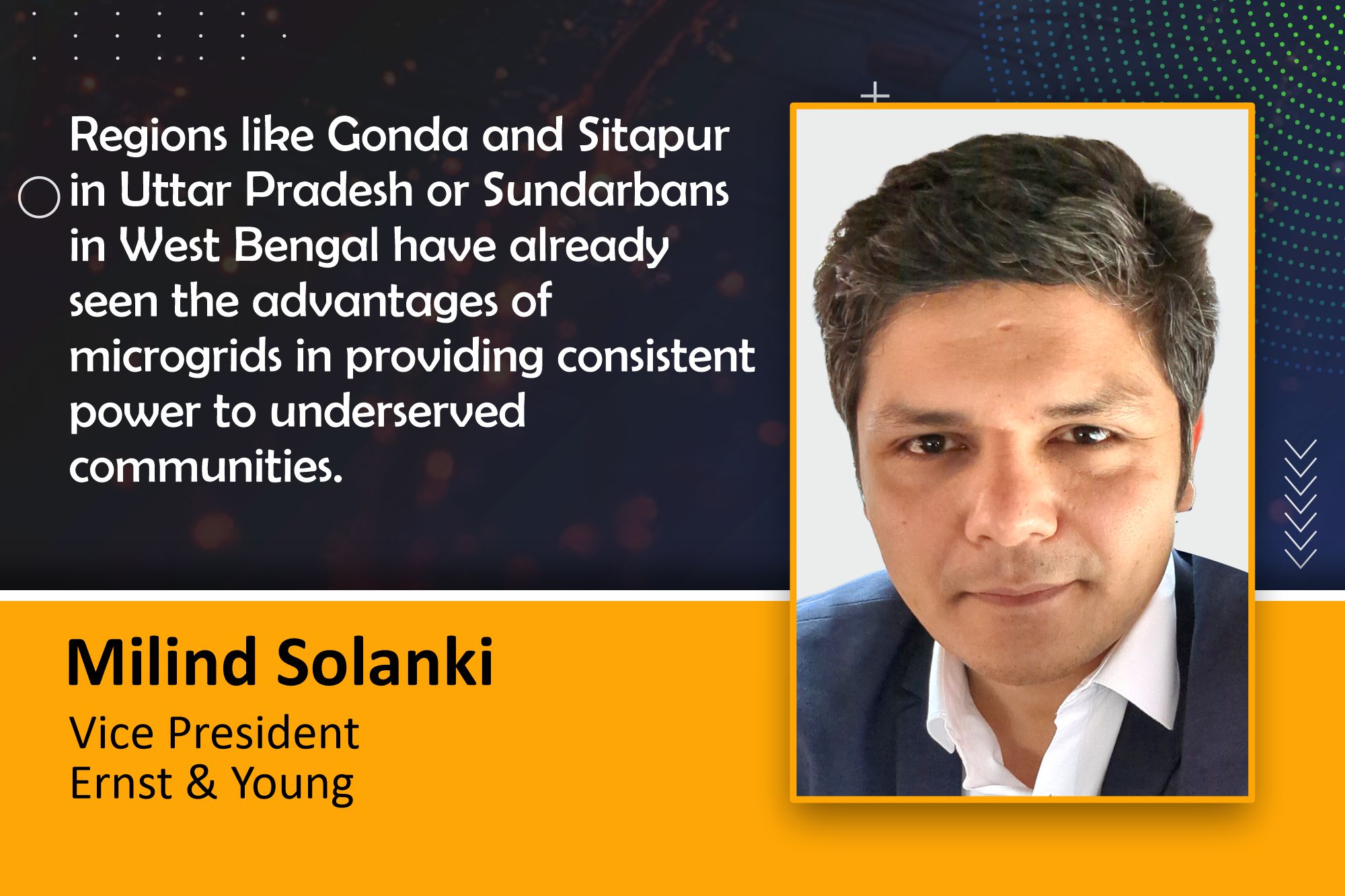India has enormous potential for decentralised energy systems
By EPR Magazine Editorial January 27, 2025 3:19 pm IST
By EPR Magazine Editorial January 27, 2025 3:19 pm IST

Decentralised energy systems (DES) have immense potential to reshape India’s energy landscape, yet they remain underexplored. Historically, the adoption of DES in India has been driven more by policies, reforms, and regulations than by large-scale implementation. While localised efforts in hamlets and areas led by proactive bureaucrats have progressed, widespread adoption is still lacking. To understand the significance of DES, we must first define it. These systems involve small-scale, localised energy generation setups such as solar rooftops, microgrids, small wind turbines, biomass generators or even decentralised green hydrogen production.
Benefits of decentralised energy systems
The Indian government has taken steps to promote decentralised energy systems. Solar rooftops, for example, have been a major focus, with an estimated potential of 800 GW nationwide. However, out of the 40 GW target set for 2026, only about 12 GW has been achieved. Initiatives like the National Greenhouse Programme with a dedicated budget of ₹200 crore and financial assistance mechanisms have been launched to accelerate adoption. Additionally, schemes such as the National Bio-Energy Plan aim to encourage further exploration of decentralised energy systems.
Decentralised energy systems offer several key benefits. The first and most significant is improved energy access in remote areas. Regions like Gonda and Sitapur in Uttar Pradesh or Sundarbans in West Bengal have already seen the advantages of microgrids in providing consistent power to underserved communities. DES also integrates renewable energy sources, complementing India’s goal of achieving 500 GW of renewable capacity by 2030. By addressing the intermittency of large-scale renewables, DES contributes to a more reliable and resilient energy supply.
Furthermore, these systems reduce transmission losses, a major issue for the Indian centralised grid. While the global average for transmission losses is around 6-8 percent, our country’s losses are approximately 18 percent, leading to significant economic inefficiencies. By generating and consuming power locally, DES minimises these losses. Lastly, decentralised systems enhance grid resilience, ensuring uninterrupted power supply during extreme weather events or disruptions.
The essential components of DES include distributed renewable energy sources such as rooftop solar, wind, and small-scale hydro projects. Energy storage systems, though currently expensive, are gaining traction. Lead-acid, lithium-ion and sodium-ion batteries are being explored for storage in remote areas, and costs are expected to decline. Smart microgrids equipped with IoT, AI, and blockchain technologies can enable peer-to-peer energy trading and improved energy management. Examples like Tata Power’s Gujarat and Uttar Pradesh initiatives showcase how technology can be leveraged for smarter energy systems.
Addressing the challengesDespite their potential, decentralised energy systems face several challenges. High initial costs remain a barrier, particularly for small-scale projects in hamlets with limited recovery potential. Financing is another significant issue as many communities and small organisations struggle to secure funds for these systems. Moreover, consumers lack awareness about their potential role as ‘prosumers’ who can both produce and consume energy. Additionally, traditional distribution companies (Discoms) often hesitate to support decentralised systems due to fears of losing customers, which leads to non-conducive policies and higher tariffs.
To overcome these challenges, a hybrid grid model combining centralised and decentralised systems could be the way forward. Such a model would ensure resilience, flexibility and efficiency. Greater awareness campaigns are needed to educate consumers and encourage their participation. Investments in advanced technologies like virtual power plants, smart sensors and SCADA systems can help optimise decentralised systems. Policymakers and regulators must also work to create a supportive framework that includes net metering, subsidies and other incentives to drive adoption. Decentralised energy systems align closely with India’s sustainable development goals (SDGs). They address issues like energy access, renewable integration and climate resilience while contributing to economic growth.
Although policymakers in the country have made notable progress, there remains ample opportunity for improvement, especially among regulators. By fostering inclusivity and leveraging technology, India can unlock the full potential of decentralised energy systems and transform its energy sector into sustainable, resilient, and future-ready.
We use cookies to personalize your experience. By continuing to visit this website you agree to our Terms & Conditions, Privacy Policy and Cookie Policy.